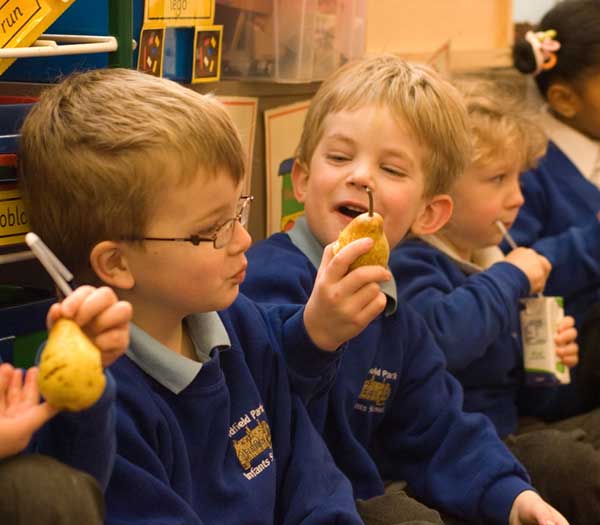
School meals have never been the subject of so much debate, but what changes have actually been made and are children and young people genuinely eating more healthily?
Schools in Derby are among the 99% of schools nationwide participating in Healthy Schools, a joint Department of Health (DH) and Department for Children, Schools and Families (DCSF) initiative, which is creating new ways to help children make healthier food choices. Today it’s fairly widely accepted that a child who has a well balanced diet will also be more alert, less tired or irritable, better engaged and more ready to learn, and the Healthy Schools framework is helping Derby, a Beacon Council for Healthy Schools, to promote school meals as fuel for education.
Derby City Council School Catering Service has developed a new way for primary school students to choose their meals in advance, by allowing students to decide which lunch they would like during registration, then preparing the right number of each dish. Children and young people can choose between a vegetarian, meat or fish dish with different recipes each day, supported by photographs and choice sheets so teachers can promote constructive discussions about new and healthy foods.
Kathryn Cordwell, Healthy Schools Consultant on Healthy Eating, explains, “Depending on which meal they choose, students are given a coloured band - red for meat, green for vegetarian and blue for fish - which makes it an inclusive and attractive choice as the children and young people love wearing them. All in all, it’s a scheme which has made a significant impact in school kitchens, budgets and in the classroom. And because exactly the right number of meals are cooked and prepared, we’ve found that schools which have tried the new system have two thirds less wasted food.
“In one school, the number of children eating school dinners has risen to 85%. So, we know they’re benefiting from food that helps them to concentrate in the classroom, improving their behaviour and their motivation to perform well.